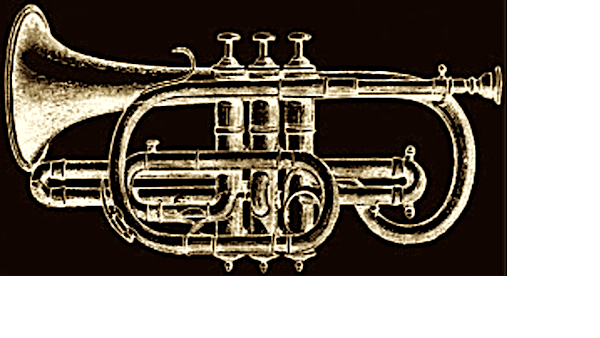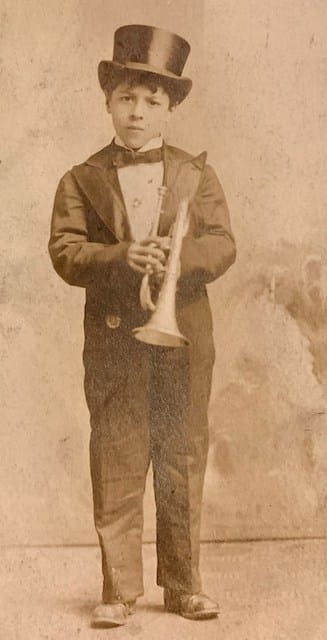KEPPARD MYTHS

There are so many gaps and unknowns in Freddie Keppard’s story that we have long relied on myths in order to tell a coherent tale about his life.
Below are some of them:
Keppard came from a “downtown” Creole family.
Status among Black families in New Orleans in Freddie Keppard’s youth was predicated in part on whether you came from “downtown” or “uptown”. The more elite, light-skinned Black Creoles, such as Jelly Roll Morton and Sidney Bechet, came from those “downtown” areas of the city near the Mississippi River, such as the French Quarter. North of these areas was “uptown”, where poor Blacks laborers lived, such as King Oliver and Louis Armstrong.
Downtown musicians read music and played sweet society scores. Uptown musicians played by ear, and their music evolved into jazz. Keppard indeed came from a Creole family, albeit one that arrived from outside the City shortly before his birth. However, he was born in a fairly rough uptown neighborhood in the Storyville area that was also home to numerous Black prostitutes. Much of his musical training was gleaned from the red light district. Friendly with both downtown and uptown musicians, Keppard found his success by straddling both the musical line as well as the cultural differences of New Orleans.

Keppard was called “King” in New Orleans.
We know for sure that Buddy Bolden was given the appellation of “King” in New Orleans and that once Joe Oliver was crowned “King” in Storyville the title became part of “King” Oliver’s name for the rest of his life. Although Freddie Keppard was clearly recognized in New Orleans as Bolden’s successor and Oliver’s predecessor, it’s not clear that he was actually called “King” in New Orleans. Black newspapers in Chicago knew of the rivalry in New Orleans between Keppard and Oliver, and exploited it by referring to “King Keppard”. So it may have been in Chicago that Keppard was first actually referred to as “King” Keppard.
In New Orleans Keppard was known as “Fred” and it wasn’t until he moved to Chicago that associates began calling him “Freddie” Keppard”.

Keppard was the founder of the Olympia band.
What came to be called the Original Olympia Jazz Band seems to have started as a collective of New Orleans musicians between 1906 and 1908, with Freddie Keppard joining early on. Given that the original core members were experienced musicians much older than Keppard, it seems likely that they started the band, with the teenage Keppard being recruited to play cornet. In time Keppard, because of his popularity, became the face of the band.

Keppard was the founder of the Original Creole Orchestra
Bass player Bill Johnson was the founder of this band. Johnson had relocated from New Orleans to California in about 1909. He experimented with bands playing a style of early jazz and found local audiences to be receptive. In 1914, he solicited a group of New Orleans musicians—including Freddie Keppard—to come to Los Angeles and form a touring band that would come to be called the Original Creole Orchestra. In addition to his great musicianship Keppard was a popular showman, and, as with the Olympia band, he became the face of the Original Creole Orchestra.

Keppard was sick and past his prime when he recorded in the 1920s.
Freddie Keppard was definitely an alcoholic by the 1920s and it affected his relationships with other musicians and his working in bands. In fact, Keppard had an alcohol problem as a young man in New Orleans, but it did not affect his music.
At some point Keppard contracted the tuberculosis that would contribute to his death in 1933. We don’t know when or where, or how long it had been latent. New Orleans was a hotbed for the disease, particularly for Black residents. Violinist Jimmy Palao, who was a fellow member of the Original Creole Orchestra, died of tuberculosis in 1925. A number of Black performers and musicians succumbed to the disease in the Chicago area in the 1920s. Obviously a lung disease such as tuberculosis will eventually impact the music of a horn player But prior to retiring in 1931 was Keppard sick and past his prime such that it affected his music in the recording studio?
When the Jazz Cardinals recorded in 1926 at Keppard’s next to the last recording session he was only 36 years old. We have no reports from fellow band members that his music during his recording career, 1923-1927, was impacted by alcohol or sickness.
For those who did think they heard a drop in the quality of Keppard’s recorded music, were they hearing music that was inferior to Keppard’s earlier standards or was it just different? After all, for those who remembered his glory days in New Orleans, a dozen or more years had elapsed, and in that time popular music itself had changed dramatically. Memories also changed.
The sound of a live performance is different than recorded sound. Today we can’t compare Keppard’s live music in New Orleans with his recorded music in Chicago, but we can at least listen to his 78s and ask ourselves if Keppard’s talents on the cornet shine through.
These were Lawrence Gushee’s thoughts:
[I]t is often said that Keppard recorded past his prime. This common misunderstanding does not long withstand careful listening but is hard to eradicate…. I hear many individual features that permit me to imagine that Keppard was not only idiosyncratic and demonic but capable of imaginative jazz improvisation…. What we can deduce from Keppard’s [recordings] is the impress of greatness…. Keppard’s playing … deserves a prominent place in the history of jazz in the mid-1920s, on the basis of sheer musical merit.

